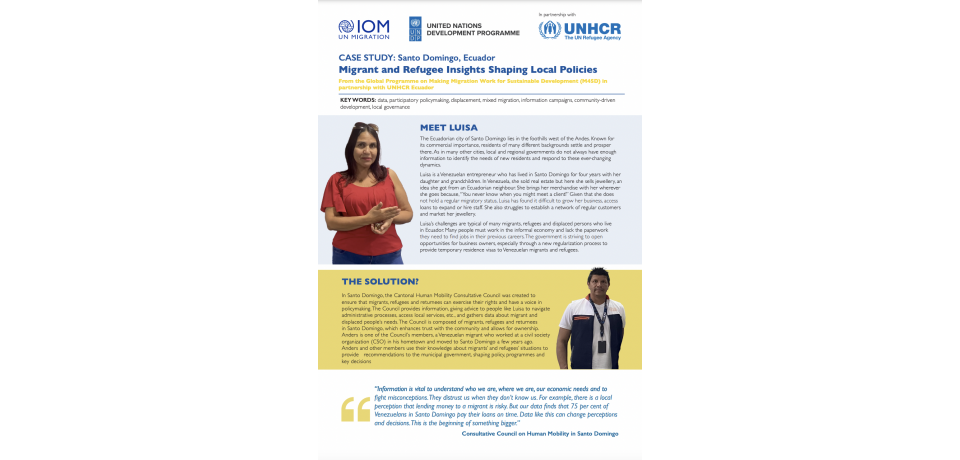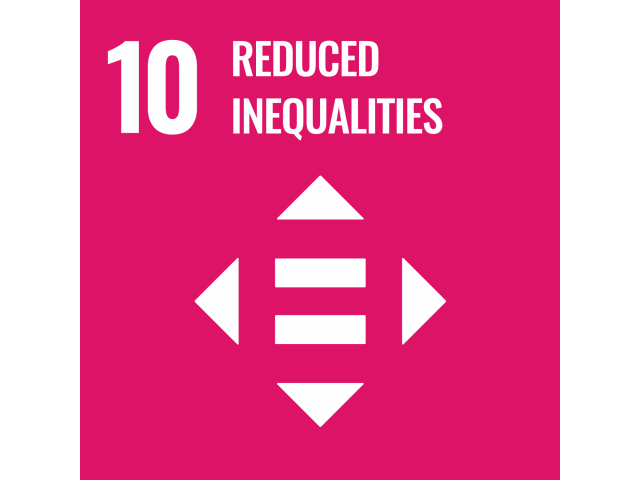CASE STUDY: Migrant and Refugee Insights Shaping Local Policies
Related Sustainable Development Goals and Global Compact for Migration Objectives
Luisa is a Venezuelan entrepreneur who has lived in Santo Domingo, Ecuador for four years. She sells jewellery, an idea she got from an Ecuadorian neighbour. Given that she does not hold a regular migratory status, Luisa has found it difficult to grow her business, access loans to expand or hire staff. She also struggles to establish a network of regular customers and market her jewellery. Luisa’s challenges are typical of many migrants, refugees and displaced persons who live in Ecuador, and the government is striving to open opportunities for business owners like her.
In Santo Domingo, the Cantonal Human Mobility Consultative Council was created to ensure that migrants, refugees and returnees can exercise their rights and have a voice in policymaking. The Council provides information, giving advice to people like Luisa to navigate administrative processes, access local services, etc., and gathers data about migrant and displaced people’s needs. The Council is composed of migrants, refugees and returnees in Santo Domingo, which enhances trust with the community and allows for ownership (Sustainable Development Goals 10, 11, 16 and more).
How do local governments and their partners in Ecuador design and support initiatives so that the needs, voices, opportunities and talent of migrant people and refugees are well-understood and well-reflected in municipal policies, decisions and services? Read the case study to find out how and read 5 tips that we learned from putting this approach into practice, including: using peer-to-peer data collection processes for quality data and more honest answers; providing information and support services to communities that you are gathering information from; teach migrants, refugees and displaced people new qualitative and participatory research practices; plan budgets, staff and office costs for sustainability of Councils like this.
These activities are partially carried out through the IOM-UNDP Global Joint Programme Making Migration Work for Sustainable Development (M4SD) which supports Ecuadorian local and national governments, the private sector and community organizations to establish community-led solutions that empower migrants, refugees and displaced people and create inclusive opportunities for all. Learn more about our work in Santo Domingo and Ecuador. The Cantonal Human Mobility Consultative Council is also supported by UNHCR.

